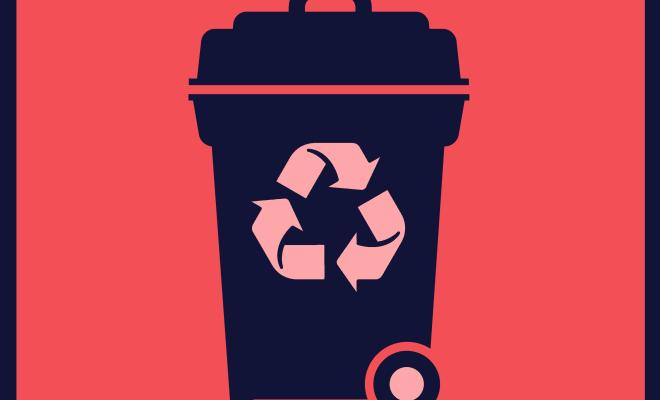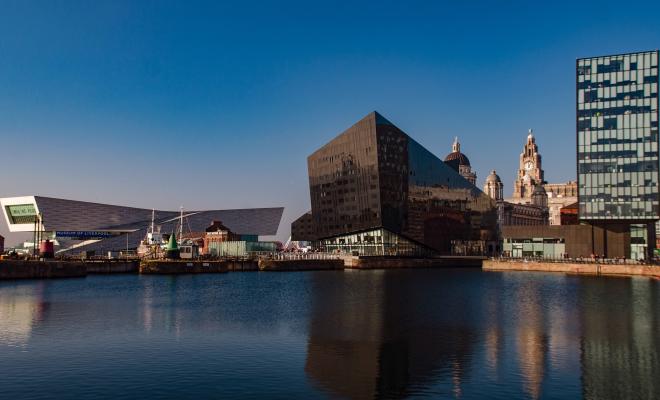20 Sep 2024
How is Action 40 tackling the climate crisis?
Plastic is made from fossil fuels and therefore releases carbon dioxide (CO2) emissions during the extraction and manufacturing processes. Single use plastic, in particular, isn’t reusable and pollutes our land, air and seas – even when it does reach a landfill site, methane gas is released during the breakdown process. Methane is a major contributing greenhouse gas causing global warming.
Durham County Council is cutting its consumption of single use plastic, and helping partners and suppliers do the same. Key to this is the creation of the council’s own single use plastic pledge, which it follows and encourages others to sign up to.
The council’s initiative was prompted by growing public awareness of plastic pollution. Organisations signing their pledge make three commitments:
- To ensure unnecessary single use plastics are reduced and ultimately eliminated across their buildings, services and activities
- To support schools, communities and residents in tackling the problem
- To support a single use plastics network within the county
The network has been set up with partners and gives support and advice to businesses.
More than 300 organisations and individuals have signed the pledge, including SMEs, schools and Durham University.
The council has developed a pledge logo to help organisations show their commitment.
Durham has also surveyed its suppliers, ensured all future contracts will consider alternatives to single use plastic and made minimising its use a condition for organisations taking part in authority-run events and exhibitions.
The authority is also engaging with suppliers via the North East Procurement Organisation, working with local schools to educate children about the circular economy, raising awareness among residents, and advising other local authorities on the issue.
Durham is exploring the use of unrecyclable waste plastic to build local roads – 6.5 tonnes have been mixed with asphalt and used in a trial project that won a national award from the Association for Public Service Excellence. The council has also strengthened its recycling of street litter and made sure council buildings are using the authority’s internal recycling schemes correctly.
Reducing single use plastic remains a high priority for the council and is embedded within the Council’s Climate Emergency Action Plan and procurement and commissioning processes.
What impact has this project had?
Reduced plastic waste
The council will quantify CO2 savings from the project in its next two-year action plan. But the impact of some individual changes is already clear from an internal audit:
- Changes to the council’s own supply list have cut the catering department’s consumption of single use plastic by 90%.
- Switching from plastic to paper confetti at the Gala Theatre is saving an average of 750kg of plastic waste a year.
- Removing plastic overshoes from council leisure centres and pools is saving an average of 2.4 tonnes of waste a year.
Increased awareness
The council has also driven greater awareness of the issue within and beyond Durham. This includes promoting St Bede’s school in Sacriston as an example of best practice, particularly their plastic-free days. This resulted in national television coverage on BBC’s The One Show, with presenter and environmentalist Matt Baker signing the council’s pledge himself.
What made this work?
Increased public awareness of the danger posed by single use plastics was a key catalyst for the project. This was boosted by numerous campaigns and documentaries such as BBC’s Blue Planet. This awareness created support and buy-in from the public and councillors.
Support at the council was strong enough that the Pledge was developed before national legislation banning the use of plastic straws and stirrers came into effect. The council carried out a feasibility study looking at existing national pledges to do with single use plastic. It was after this that the authority decided to create its own bespoke pledge.
Partnership working was key to making the pledge and project successful, with organisations including Beamish Museum, The Environment Agency and Northumbrian Water joining a task force with the council. Close working across the council including the –waste management, procurement, catering and sustainability teams – was also essential.
Action on procurement was vital. This included making questions about single use plastic - such as whether suppliers had signed the pledge - part of the council’s standard procurement framework. The council also influenced the North East Procurement Organisation – which buys goods and services for many of the region’s authorities – to take the same approach for its contract. Council procurement staff have also placed alerts on internal systems to stop departments buying unnecessary single use plastic.
What resources were needed?
The SUP Pledge project doesn’t have a dedicated single budget line – but resources and responsibility are shared collectively within different service areas, with different departments changing their own area of work. Staff time tackling this issue is within members of the task group’s day to day roles.
The project is monitored every three months by a scrutiny group.
Lessons from Durham
- Feasibility work was important to the success of the project – in Durham’s case, it revealed that going 100% plastic free would be impossible and that significantly reducing single use plastic while educating staff, communities and businesses was a more effective approach).
- The feasibility study also highlighted potential pitfalls. One example of a potential mistake is jumping to use plastic free or biodegradable coffee cups which may not get recycled in the right way.
- Good partnership working (both internal and external) was essential – if the authority doesn’t have the staff resource and support internally, then external partnerships are very useful.
- Agreeing on common goals made partnership work easier and more successful.
“Plastic pollution is one of the most pressing environmental issues of the day and it’s vital we all do what we can to tackle it.
“I’m delighted our Single Use Plastic Pledge is delivering such positive results, not just in terms of reducing the council’s own use of single use of plastics but that of schools, businesses and other organisations too. Just as importantly, the pledge is helping to raise awareness of the issue and the need for us all to consider the environment in our day-to-day lives.
“The fact more than 300 organisations have signed the pledge is really encouraging, but we have got to keep the momentum going. I hope the results of this project inspire other local authorities to establish their own pledges and would also urge any organisations that are interested in signing up in County Durham to get in touch.”
Cllr Mark Wilkes, Durham County Council Cabinet member for Neighbourhoods & Climate Change
Useful information
Related projects
We came across several other councils working to minimise or eliminate single use plastic.
- The City of London’s Clean City Awards Scheme has cut 36 million items of single use plastic.
- Brighton and Hove City Council has developed a policy committing itself to minimise single use plastic.
- Bedford Borough Council is working to eliminate single use plastic within its own buildings and across the borough.
Friends of the Earth's view
Durham has shown that it's possible to require sustainability measures in procurement contracts. And by going beyond its own use of plastic to encourage local people and businesses to do the same it is having a greater impact.
Other things that councils can do about plastics include:
- Installing water fountains for their staff but also in public spaces across their council areas, so that people can refill water bottles rather than buying single-use plastic ones, there are some helpful case studies at onelessbottle.org.
- Encourage repair cafes, 'libraries of things' or other initiatives that enable re-use at a community/council level, by promoting such initiatives if they're already present locally, or by providing funding, prizes, or other incentives for such initiatives to be developed, as suggest in Action 38 of the Climate Action Plan.
Friends of the Earth is showcasing specific examples of good practice in tackling climate change, but that doesn’t mean we endorse everything that a council is doing.
This case study was produced by Ashden and Friends of the Earth. Any references to national policy in this case study relate to policy under the previous government and reflect the policy context in which the council was operating at the time.




